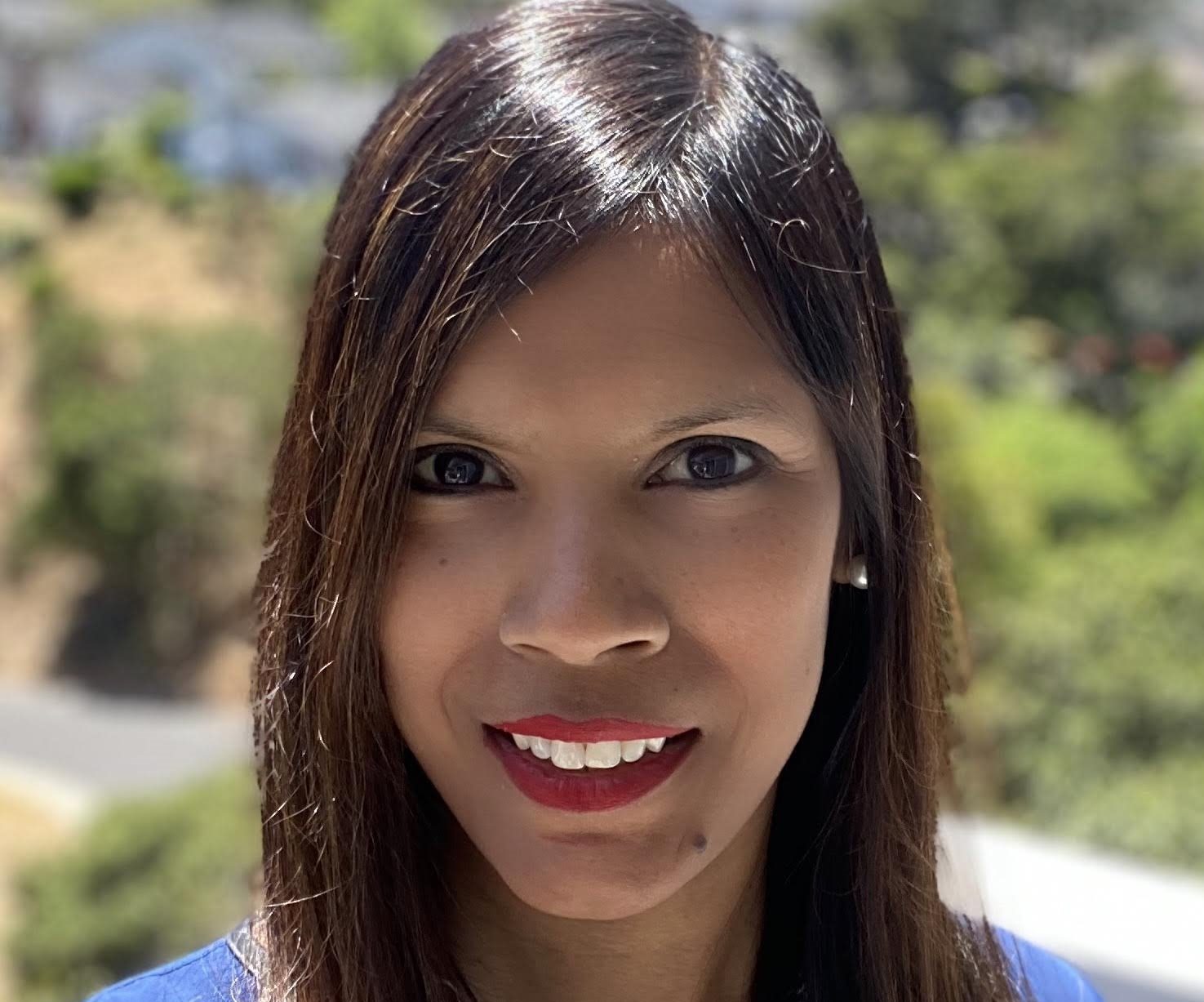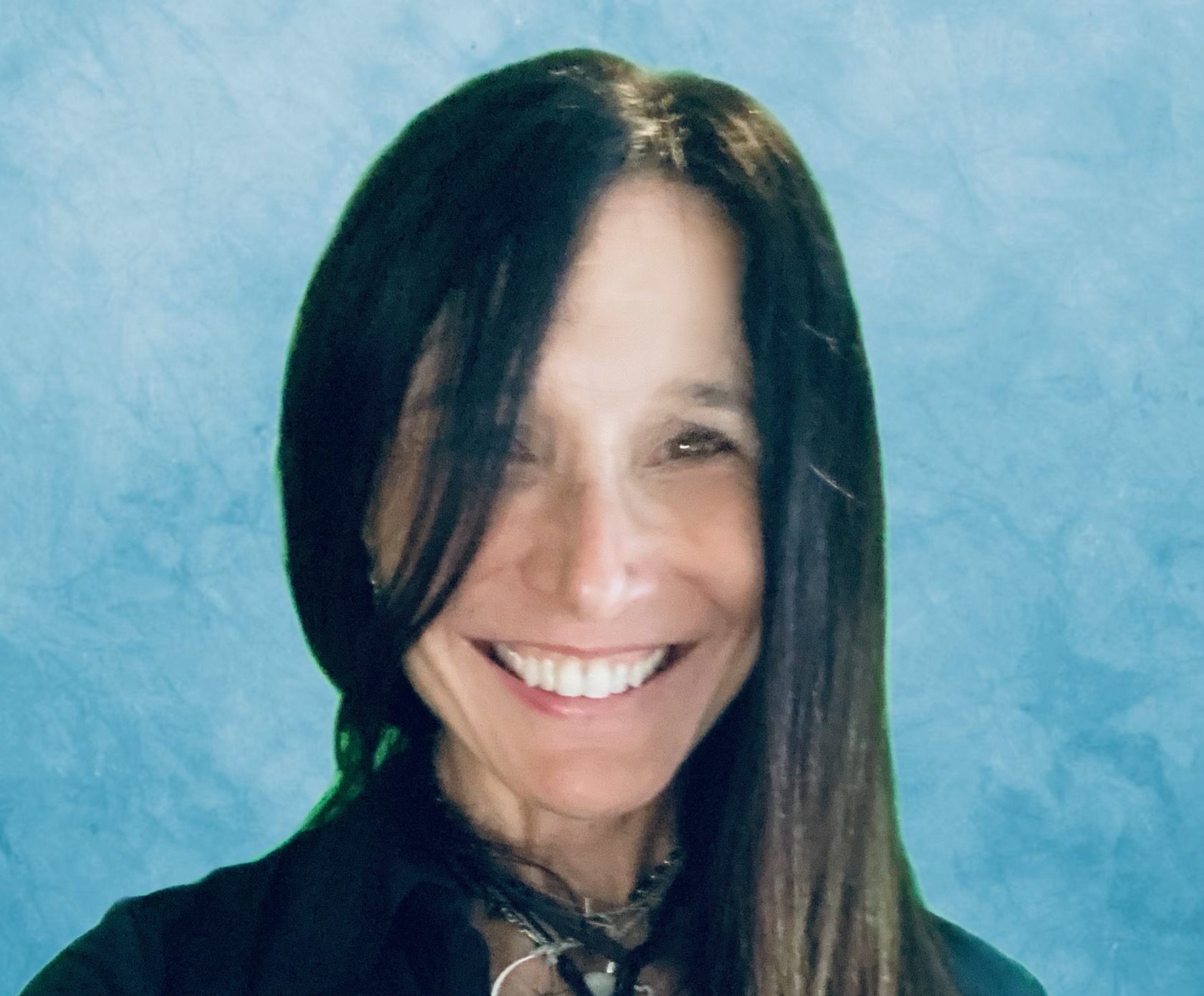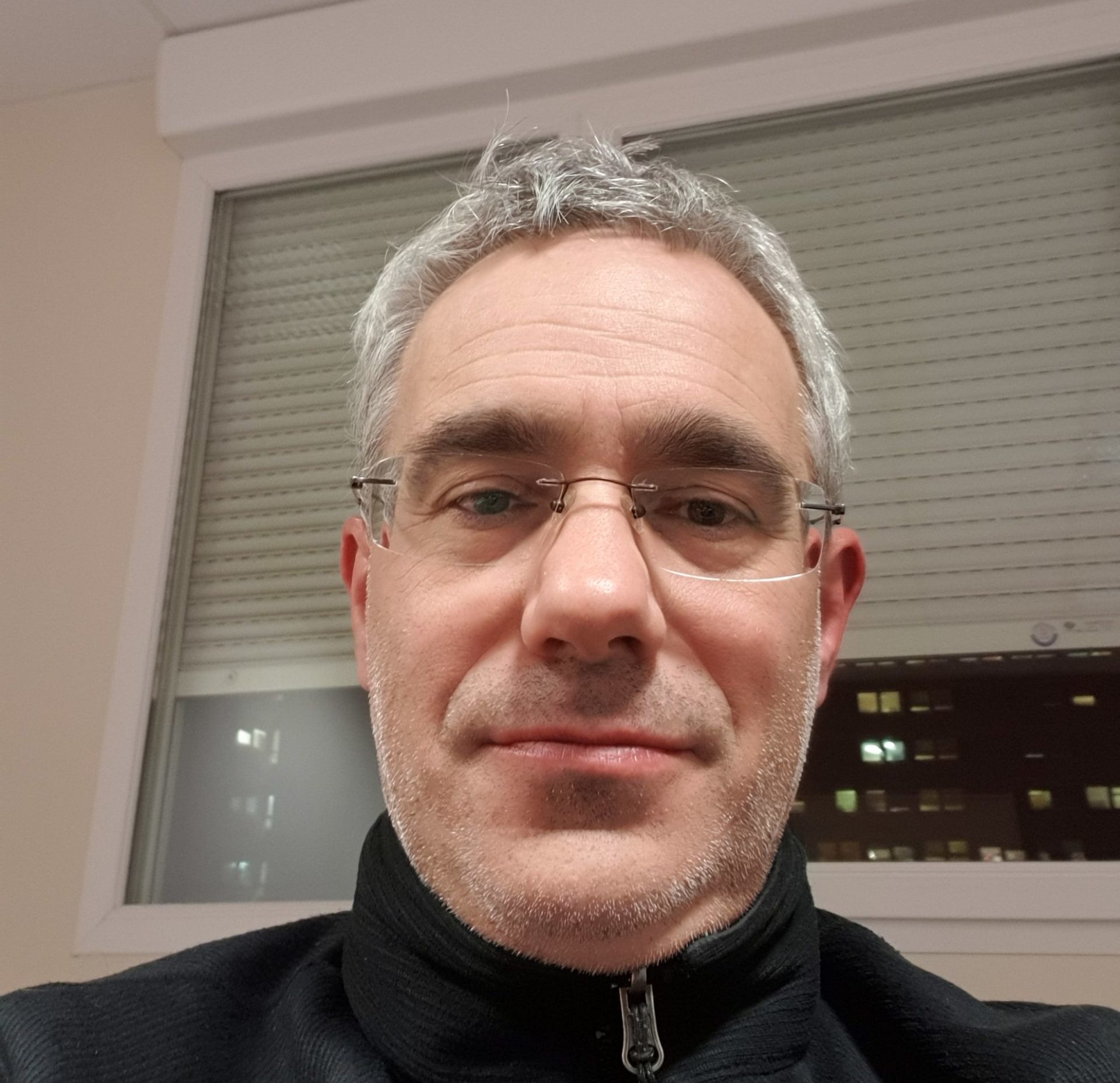touchPANEL DISCUSSION Keeping pace with the evolving treatment paradigm for relapsed/refractory multiple myeloma: Earlier use of novel agents
Three international experts discuss how novel agents approved for early lines of therapy are changing the landscape of RRMM treatment.

Dr Nina Shah
University of California San Francisco, San Francisco, CA, USA
CHAIR
Panelists:
Introduction
Dr Nina Shah chairs a discussion with Dr Cristina Gasparetto and Prof. Xavier Leleu on the use of novel therapeutic agents for relapsed/refractory multiple myeloma in early lines of treatment.
view bio and disclosures 1/4 Next ChapterHow can we utilize novel agents earlier in the treatment pathway?
Dr Nina Shah, Dr Cristina Gasparetto and Prof. Xavier Leleu discuss how the use of novel agents in earlier lines of therapy is changing the management of patients with relapsed/refractory multiple myeloma.
view bio and disclosures 2/4 Next ChapterHow can we apply trial data to clinical practice?
The panel considers the efficacy data for novel therapeutic agents for relapsed/refractory multiple myeloma used early in the treatment pathway and how these findings can be applied in clinical practice to improve patient outcomes.
view bio and disclosures 3/4 Next ChapterWhat supportive care should be considered with novel agents?
The experts discuss how to provide patients with relapsed/refractory multiple myeloma the best supportive care to mitigate the side effects observed with novel agents used as early lines of therapy.
view bio and disclosures 4/4 Take CE/CME TestOverview & Learning Objectives
Overview
In this activity, a panel of experts in relapsed/refractory multiple myeloma (RRMM) discuss how recent data and ongoing clinical trials of novel therapeutic agents used earlier in the treatment pathway are shaping the treatment paradigm for RRMM.
This activity is jointly provided by USF Health and touchIME. read more
Target Audience
This activity has been designed to meet the educational needs of haematology and oncology specialists involved in the management of relapsed and refractory multiple myeloma.
Disclosures
All individuals in a position to influence content have disclosed to USF Health any financial relationship with an ineligible organization. USF Health has reviewed and mitigated all relevant financial relationships related to the content of the activity. The relevant relationships are listed below. All individuals not listed have no relevant financial relationships.
Faculty
Dr Nina Shah discloses: Advisory board or panel fees from Amgen, CareDx, Commonwealth Serum Laboratories Behring, GlaxoSmithKline, Indapta Therapeutics, Karyopharm, Kite Pharma, Oncopeptides and Sanofi. Grants/research support from Bluebird Bio, Bristol Myers Squibb/Celgene, Janssen, Nektar, Poseida, Precision Biosciences, Sutro Biopharma and Teneobio.
Dr Cristina Gasparetto discloses: Advisory board or panel fees from AbbVie, Bristol Myers Squibb/Celgene, GlaxoSmithKline, Janssen, Karyopharm and Oncopeptides. Speaker’s bureau fees from GlaxoSmithKline, Karyopharm, Oncopeptides and Sanofi.
Prof. Xavier Leleu discloses: Advisory board or panel fees from AbbVie, Amgen, Bristol Myers Squibb, Gilead, GlaxoSmithKline, Janssen, Karyopharm, Merck, Novartis, Oncopeptides, Pfizer, Sanofi and Takeda. Consultancy fees from AbbVie, Amgen, Bristol Myers Squibb, Gilead, GlaxoSmithKline, Janssen, Karyopharm, Merck, Novartis, Oncopeptides, Pfizer, Sanofi and Takeda.
Content reviewer
Rebecca Nelson, PharmD, BCOP has no financial interests/relationships or affiliations in relation to this activity.
Touch Medical Director
Adriano Boasso and Hannah Fisher have no financial interests/relationships or affiliations in relation to this activity.
USF Health Office of Continuing Professional Development and touchIME staff have no financial interests/relationships or affiliations in relation to this activity.
Requirements for Successful Completion
In order to receive credit for this activity, participants must review the content and complete the post-test and evaluation form. Statements of credit are awarded upon successful completion of the post-test and evaluation form.
If you have questions regarding credit please contact cpdsupport@usf.edu
Accreditations
Physicians
This activity has been planned and implemented in accordance with the accreditation requirements and policies of the Accreditation Council for Continuing Medical Education (ACCME) through a joint providership of USF Health and touchIME. USF Health is accredited by the ACCME to provide continuing medical education for physicians.
USF Health designates this enduring material for a maximum of 1.0 AMA PRA Category 1 CreditTM. Physicians should claim only the credit commensurate with the extent of their participation in the activity.
The European Union of Medical Specialists (UEMS) – European Accreditation Council for Continuing Medical Education (EACCME) has an agreement of mutual recognition of continuing medical education (CME) credit with the American Medical Association (AMA). European physicians interested in converting AMA PRA Category 1 CreditTM into European CME credit (ECMEC) should contact the UEMS (www.uems.eu)
Advanced Practice Providers
Physician Assistants may claim a maximum of 1.0 Category 1 credits for completing this activity. NCCPA accepts AMA PRA Category 1 CreditTM from organizations accredited by ACCME or a recognized state medical society.
The AANPCP accepts certificates of participation for educational activities approved for AMA PRA Category 1 CreditTM by ACCME-accredited providers. APRNs who participate will receive a certificate of completion commensurate with the extent of their participation.
Date of original release: 21 October 2021. Date credits expire: 21 October 2022.
If you have any questions regarding credit please contact cpdsupport@usf.edu
Learning Objectives
After watching this activity, participants should be better able to:
- Recall the role of novel therapies earlier in the treatment pathway for RRMM
- Discuss the trials utilizing novel agents earlier in the treatment pathway for RRMM
- Use appropriate supportive care measures when initiating patients with RRMM on a novel agent
Faculty & Disclosures

Dr Nina Shah
University of California San Francisco, San Francisco, CA, USA
Nina Shah is Professor of Clinical Medicine in the Division of Hematology and Oncology at University of California San Francisco, San Francisco, CA, USA. Her research focuses on multiple myeloma clinical trials, specifically immunotherapy and cellular therapy. read more
She performed the first-in-human clinical trial of umbilical cord blood-derived natural killer cell therapy for myeloma and is one of the lead principal investigators for the multi-center Blood and Marrow Transplant Clinical Trials Network (BMT CTN) 1401 dendritic cell vaccine trial for myeloma patients. Additionally, she is the institutional principal investigator for numerous cellular therapy and immunotherapy protocols.
Dr Shah is also interested in outcomes research for myeloma patients undergoing autologous transplantation or cellular therapy and led a randomized trial to determine the impact of stem cell dose on symptoms in this patient population. She has published on the link between patient-reported outcomes and physical testing in this clinical context and is conducting a study to investigate digital life coaching during transplant recovery. She is heavily involved in the myeloma research community and led the effort to define myeloma-transplant practice guidelines for the American Society of Blood and Marrow Transplant (ASBMT). She also serves as a co-chair for the Plasma Cell Disorders and Adult Solid Tumors Working Committee at the Center for International Blood & Marrow Transplant Research (CIBMTR) and is a member of the American Society of Hematology Scientific Committee on Plasma Cell Neoplasia.
Dr Nina Shah discloses: Advisory board or panel fees from Amgen, CareDx, Commonwealth Serum Laboratories Behring, GlaxoSmithKline, Indapta Therapeutics, Karyopharm, Kite Pharma, Oncopeptides and Sanofi. Grants/research support from Bluebird Bio, Bristol Myers Squibb/Celgene, Janssen, Nektar, Poseida, Precision Biosciences, Sutro Biopharma and Teneobio.

Dr Cristina Gasparetto
Duke University Medical Center, Durham, NC, USA
Cristina Gasparetto is Associate Professor of Medicine at Duke University Medical Center in Durham, NC, USA, where she is also leading the Multiple Myeloma program within the Division of Cellular Therapy and Hematologic Malignancies. read more
Dr Gasparetto was recruited as a faculty member in the Bone Marrow Transplantation Program at Duke University in 1999. Her main area of research and clinical focus was in myeloma and other plasma cell disorders. Dr Gasparetto’s research began with work on the development of a myeloma-specific dendritic cell vaccine. Currently she focuses on clinical research optimizing transplantation and new drug development for myeloma and amyloidosis. Dr Gasparetto is recognized internationally as an expert in multiple myeloma and is a member of national and international committees including the International Myeloma Working Group and ALLIANCE.
Dr Cristina Gasparetto discloses: Advisory board or panel fees from AbbVie, Bristol Myers Squibb/Celgene, GlaxoSmithKline, Janssen, Karyopharm and Oncopeptides. Speaker’s bureau fees from GlaxoSmithKline, Karyopharm, Oncopeptides and Sanofi.

Prof. Xavier Leleu
Hospital of Poitiers, Poitiers, France
Xavier Leleu is Professor and Head of the Department of Hematology at Hôpital La Miletrie, part of the Academic Hospital of Poitiers (Centre Hospitalier Universitaire, CHU), France. read more
Prof. Leleu started working in the field of myeloma in 1995. His main interest is drug development in myeloma, most recently with a special focus on immunotherapy. Prof. Leleu collaborates actively with Inserm Centre d’Investigation Clinique (CIC) U1402 Target in Hematology and Oncology Research (THOR) and Inserm U1082 ImmunoRegulation, Alarmins and Innate T cells (IRATI) on the role of the immune microenvironment in myeloma.
Dr Leleu is a member of many scientific societies including the American Society of Hematology (ASH), the European Hematology Association (EHA), the American Society of Clinical Oncology (ASCO) and the International Myeloma Working Group (IMWG). Prof. Leleu is a member of the board of directors at the Intergroupe Francophone du Myélome (IFM) and is, currently the treasurer of IFM. Prof. Leleu has published widely in the field of haematology, particularly on multiple myeloma, and he is on the editorial board of several noted journals in the field of haematology.
Prof. Xavier Leleu discloses: Advisory board or panel fees from AbbVie, Amgen, Bristol Myers Squibb, Gilead, GlaxoSmithKline, Janssen, Karyopharm, Merck, Novartis, Oncopeptides, Pfizer, Sanofi and Takeda. Consultancy fees from AbbVie, Amgen, Bristol Myers Squibb, Gilead, GlaxoSmithKline, Janssen, Karyopharm, Merck, Novartis, Oncopeptides, Pfizer, Sanofi and Takeda.

Register to touchONCOLOGY for FREE
- Peer-reviewed journals and expert opinions
- Interactive CME and e-learning modules
- Video conference highlights

